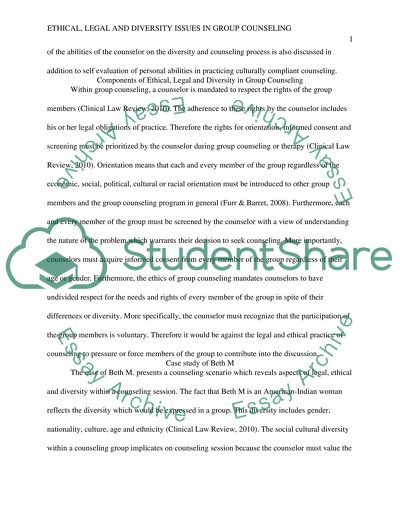Cite this document
(“Ethical, Legal and Diversity Issues in Group Counseling Research Paper”, n.d.)
Retrieved from https://studentshare.org/psychology/1453925-ethical-legal-and-diversity-issues-in-group
Retrieved from https://studentshare.org/psychology/1453925-ethical-legal-and-diversity-issues-in-group
(Ethical, Legal and Diversity Issues in Group Counseling Research Paper)
https://studentshare.org/psychology/1453925-ethical-legal-and-diversity-issues-in-group.
https://studentshare.org/psychology/1453925-ethical-legal-and-diversity-issues-in-group.
“Ethical, Legal and Diversity Issues in Group Counseling Research Paper”, n.d. https://studentshare.org/psychology/1453925-ethical-legal-and-diversity-issues-in-group.


